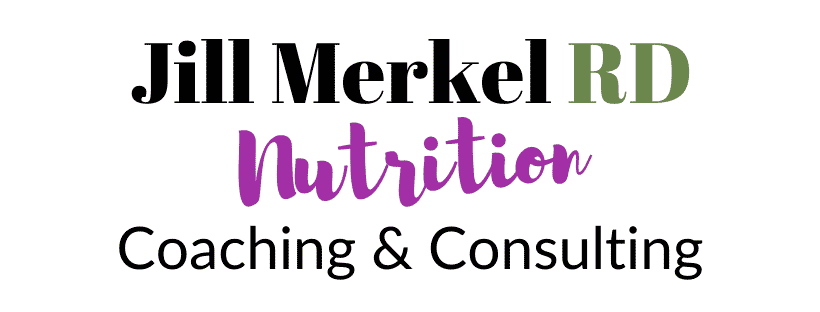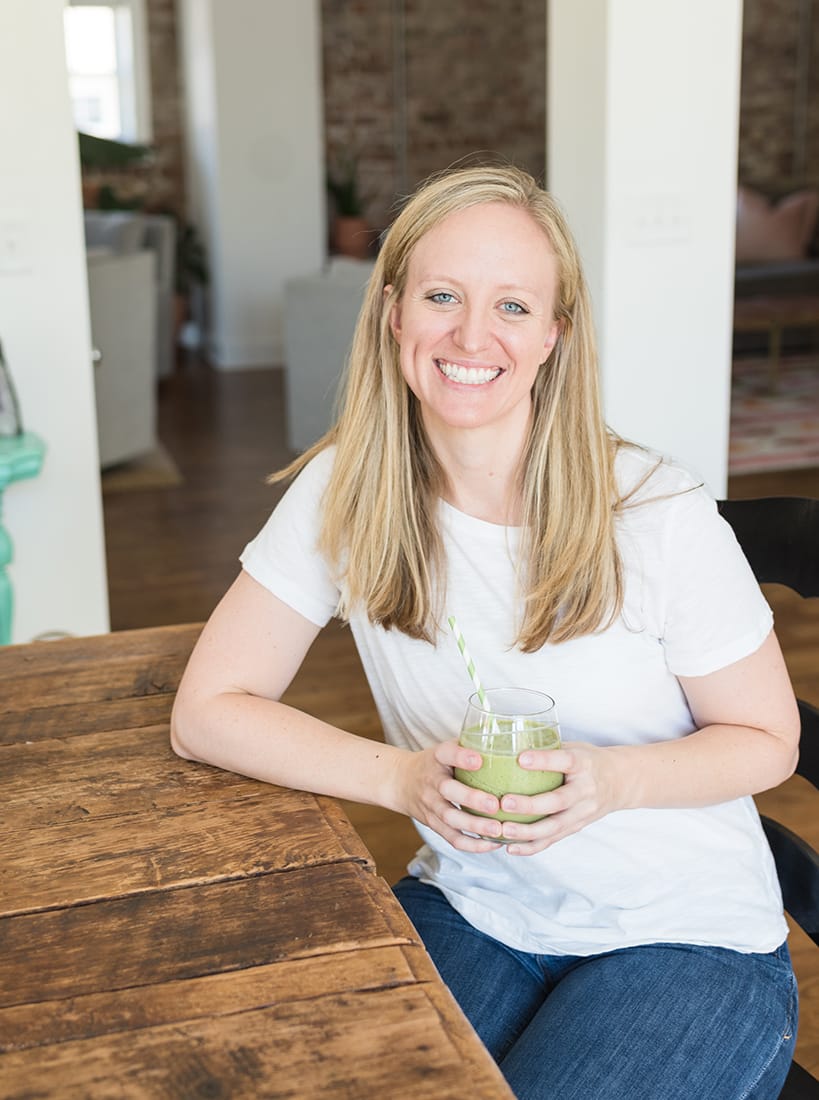What is disordered eating?
Eating is not black and white. It occurs on a spectrum from “normal” eating to eating disorders. A lot of people find themselves in the middle, gray area, and aren’t sure if they have a problem or should seek help. I’m here to help you understand what disordered eating may look like and tips for you to assess if seeking help is for you.
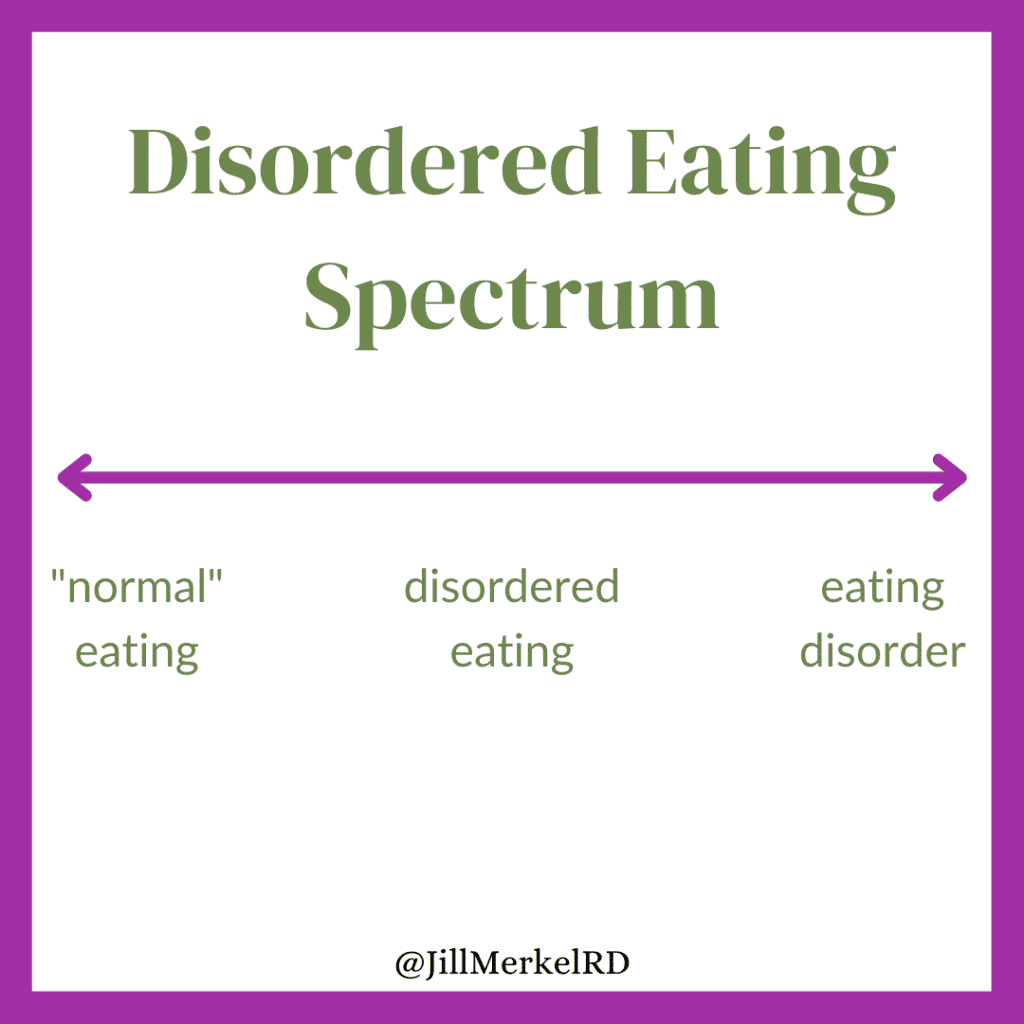
Before we get into what disordered eating is, let’s start with what “normal” eating or non-disordered eating looks like.
What is “Normal” Eating?
“Normal” eating is flexible & adaptable. Unlike diets, that are strict & rigid & you’re either “on” the diet or “off” the diet, normal eating allows you to live your life without stress or obsession. Normal eating also accounts for food preferences & food availability. There are no “good” or “bad” foods. Food is just food. And nourishing your body with whatever foods you have available is more important than trying to eat “perfectly”.
Normal eating is listening to your body & getting back to trusting your body’s internal cues rather than following external rules or guidelines. Normal eating, ultimately, works for YOU.
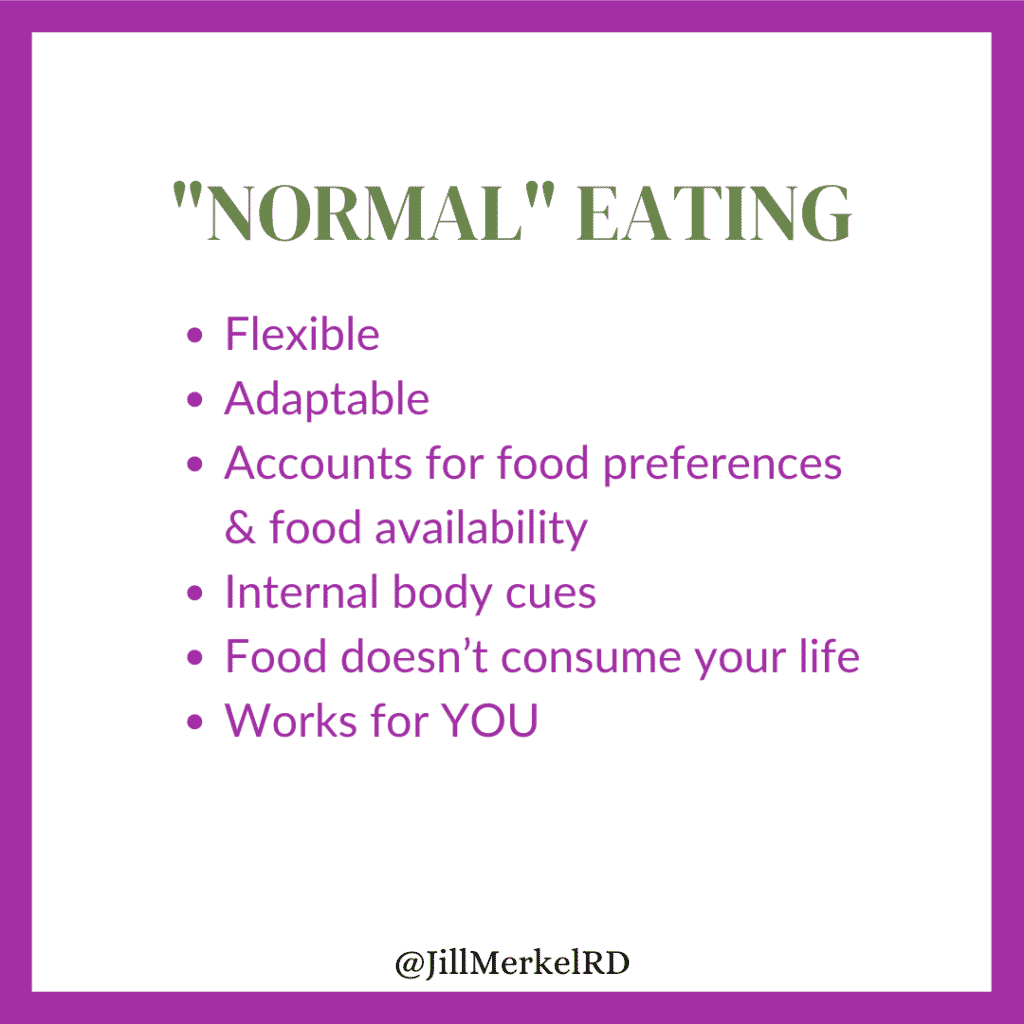
What is Disordered Eating?
Disordered eating is actually a lot of what diet culture and fad diets tell us we “should” be doing such as:
- Having strict, rigid, external rules or criteria to follow rather than trusting and listening to our own bodies.
- Counting or tracking calories, macros, points, etc.
- Not trusting our body to do its job.
- Feeling like we have to micromanage everything we eat.
- Labeling foods as “good” and “bad”, which often leads to feelings of being “good” or “bad” and can cause a lot of shame, guilt and fear around foods.
- Restriction or eating less than your body actually needs. Typically this is done to pursue intentional weight loss but it may also be unintentional such as skipping meals because you’re busy or having certain rules around when or what time you allow yourself to eat.
- Obsession or thinking about food constantly.
- Over exercising. This may look like feeling like you have to exercise every day or a certain times per week or burn a certain # of calories. Or it may look like having anxiety or guilt for taking time to rest. Or exercising even when sick or injured. Or exercising to compensate for something you ate.
Again, a lot of these behaviors are promoted and often seen as “normal” in our very disordered, diet culture society.
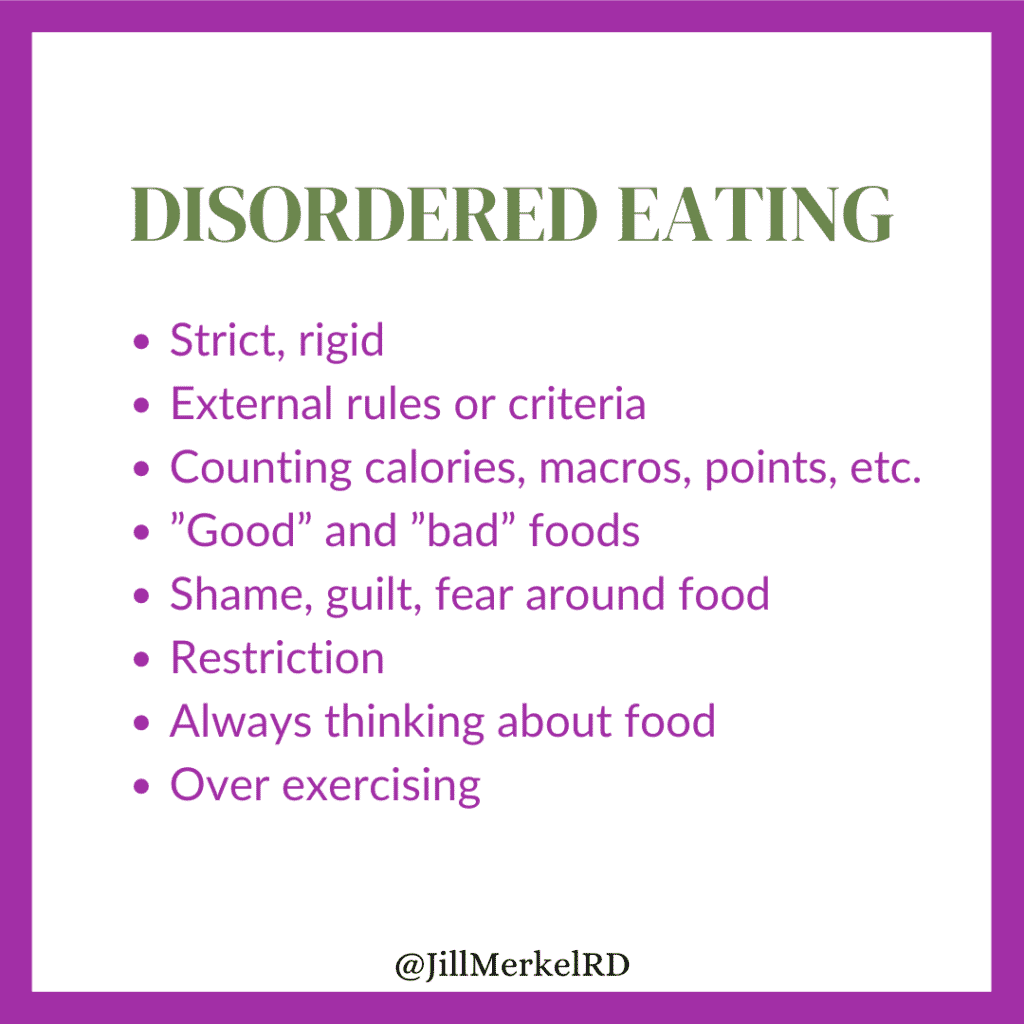
When Does Disordered Eating Become an Eating Disorder?
And then on the far end of the spectrum, we have clinically diagnosed eating disorders.
Not everyone who diets or has disordered eating will progress into a full-on ED. But it can be a slippery slope. In fact, studies show that 35% of dieters will progress into disordered eating and 30-45% of dieters will progress into a full eating disorder. That’s why we anti-diet professionals are so passionate about helping people understand the harms of dieting.
Clinically diagnosed Eating Disorders are complex and must fit certain criteria in order to be diagnosed. But that doesn’t mean that individuals that don’t meet the criteria for diagnosis don’t need or deserve help.
Anorexia, Bulimia, Binge Eating disorder, OSFED, and Orthorexia. Though it’s not officially a medically diagnosed eating disorder, it is still prevalent and harmful. It’s taking nutrition to an extreme. An unhealthy and rigid obsession with eating healthfully. This is becoming more prevalent among young people, in large part due to social media and the pressures to look a certain way. This may cause fear of certain foods or only wanting to eat “clean” foods. A lot of those disordered eating behaviors we looked at earlier.
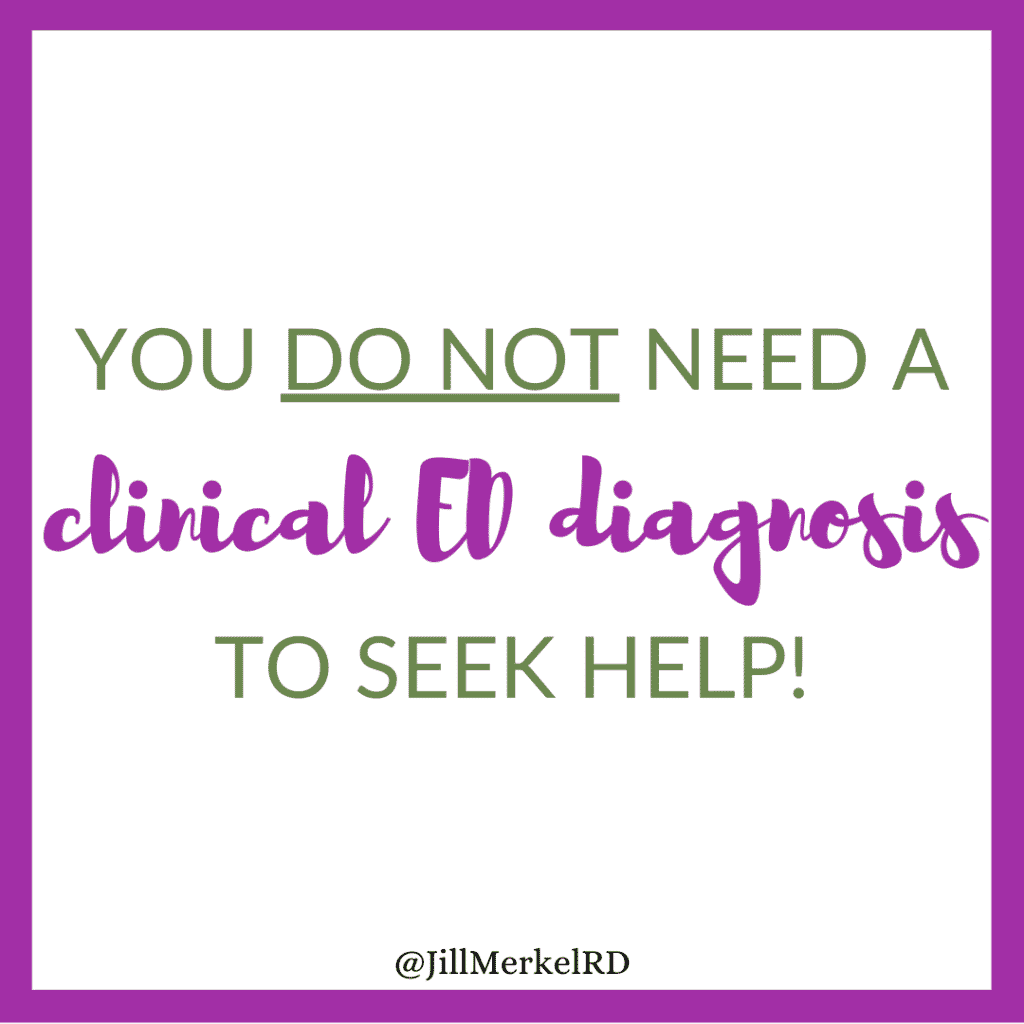
When To Seek Help for Food & Body Image Concerns
If food, nutrition, or body image thoughts, behaviors, rules, beliefs are causing you to feel distressed or interfering with you living a full, vibrant life, you deserve help.
If you have noticeable fluctuations in weight, especially unintentionally or rapidly, seek help.
If your period or menstrual cycle becomes irregular or nonexistent, that is a major red flag that you are likely not eating enough.
And ultimately, you are allowed and deserving of seeking help and support simply because you want to. Don’t be afraid to reach out! You only have one wild and precious life, and you deserve to have a healthy relationship with food, exercise, and your body, in order to live that life to the fullest.
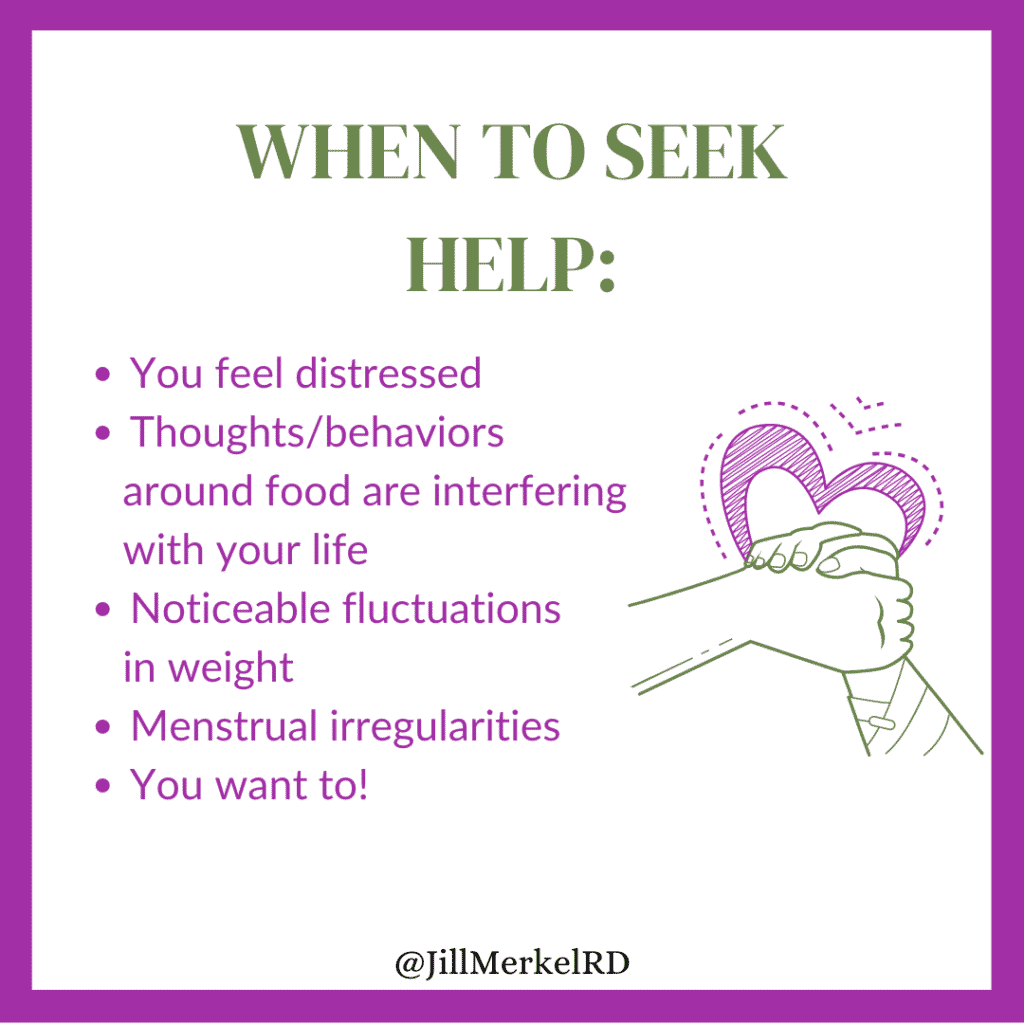
It’s okay (even encouraged!) to seek help if you are struggling with disordered eating. Please reach out.
Looking for More?
Download my FREE Guide – 5 Steps to Stop Obsessing About Food and Your Body
Individual Nutrition Coaching – if you’re looking for more individualized support, check out my options for working together one on one.
Intuitive Eating Support Group for Women – if you’re interested in learning more about Intuitive Eating in a supportive, small group environment, this is the group for you!
